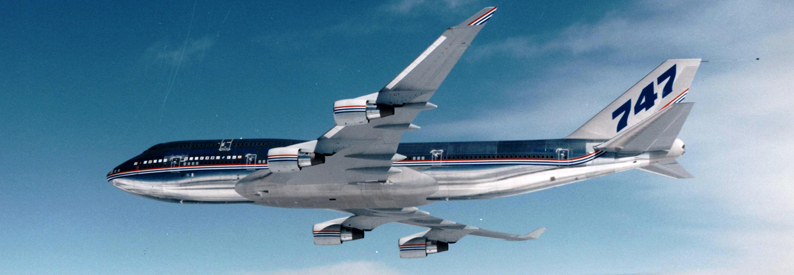Israel to ban 747s, A340s or A380s quad-jets from Tel Aviv airport in 2023

Reform set to come into effect in March 2023, though it will only affect cargo carriers as no passenger airlines currently fly 747s, A340s or A380s to Tel Aviv
The Israel Airports Authority said it will aim to reduce noise and air pollution at Ben Gurion Airport by banning four-engine civilian aircraft, including Boeing 747s and other jumbo jets, starting next year.
The move, announced Thursday Sep. 1, will be unlikely to affect major airliners flying to Israel’s primary international airport, with most of them already having phased out four-engine behemoths in favor of two-engine planes, but could impact major freight haulers who continue to use the planes for mail and other cargo.
The IAA said it had begun informing carriers of the reform, which is set to go into effect in late March 2023, to allow them to prepare.
IAA CEO Hagai Topolansky said the ban was “the first step in a broader plan that is currently under development,” as Israel aims to modernize its airports while also meeting upped demand and environmental challenges.
“I’ve instructed the relevant entities in the authority to start carrying out actions meant to reduce the extent of noise at the airport in order to reduce environmental threats and ease the situation for surrounding towns affected by the activity at Ben Gurion Airport,” said , a retired Israel Defense Forces general who moved into the role in June.
The announcement noted that exceptions to the policy will be allowed, for instance the arrival of a US president to Israel in an Air Force One designated plane – currently a four-engine Boeing 747-200 aircraft.
Most airlines have gradually shifted to two-engine planes in recent years as engine technology has improved, allowing twin-engine aircraft to exhibit better performances with lower costs.
Flag carrier El Al flew its last jumbo jet, a 747-400, in 2019. Delta, which at one time flew a 747-400 to Israel, retired the plane in 2018.
While a few airlines that fly to Tel Aviv continue to use the Airbus A340 and A380 — the largest passenger jet in the world — none use them for flights to Israel.
However a number of cargo carriers, notable Israel based CAL Cargo Airlines, continue to use 747s to ship freight to and from Israel.
This is the second dramatic announcement to come out of the IAA within two weeks.
Last month, the authority said Topolansky had allocated over NIS 50 million (over $15 million) toward a digital transformation at Ben Gurion Airport that will see waiting times significantly reduced by bypassing time-consuming procedures.
According to the plan, set to be ready by the beginning of next year, outgoing passengers will be able to independently weigh their luggage and pay for extra weight if necessary in new service centers referred to by the IAA as Touch-and-Play booths.
Passengers will also be able to print out luggage tags and send their luggage to the plane by themselves, which will render the initial check-in lines at the airport obsolete.
Ofer Lapler, the spokesperson for the Israel Airports Authority, said in June that there had been a 340% increase in passengers and flights at Ben Gurion Airport since March and that the airport was dealing with a shortfall of 1,400 workers, mirroring crowding and shortages at airports around the world.
According to Israel’s Civil Aviation Authority, Ben Gurion Airport will reach its capacity of 40 million passengers and 250,000 flights annually by 2029. timesofisrael.com
